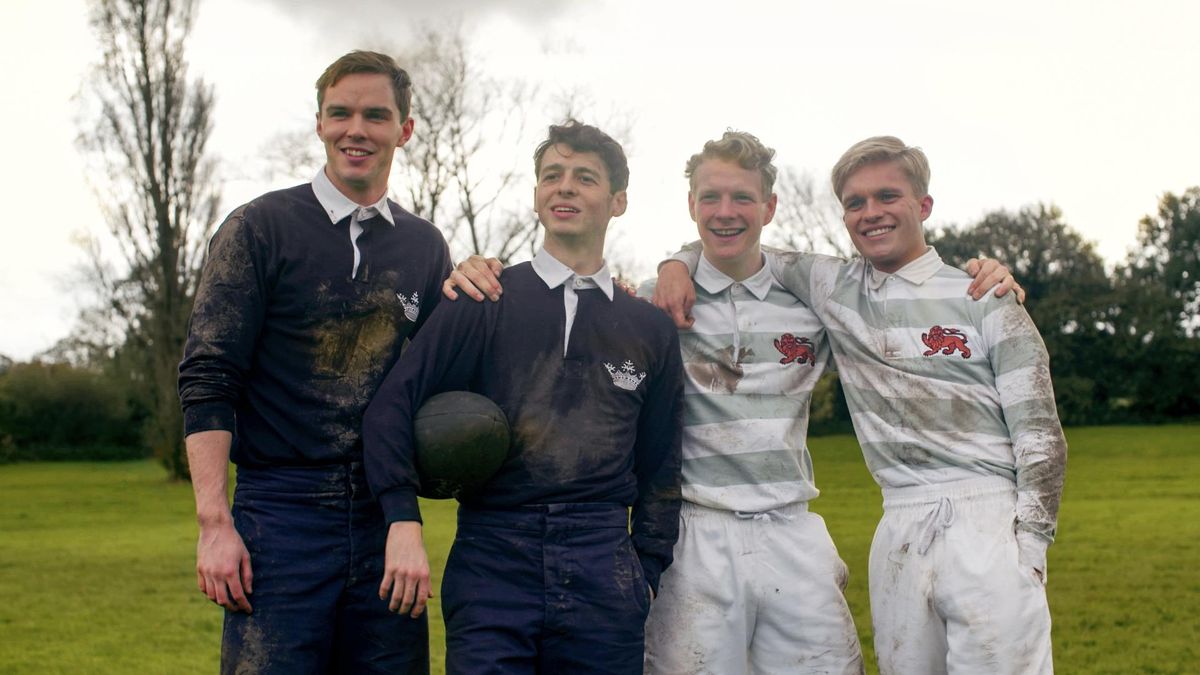Review: Tolkien movie is about fellowship, but that’s not quite as fun as lords and rings

By virtue of its marketing campaign (and, um, its name), the film “Tolkien” suggests that it is a portrait of the formative years of J.R.R. Tolkien, the English author of “The Hobbit” and “The Lord of the Rings.” And while it certainly is a literary coming-of-age story – Nicholas Hoult plays the young J.R.R., or Ronald, as a young man, with Harry Gilby covering his teenage years – it is also very much a movie about three other young men, or at least Tolkien’s relationship to them.
Those men are: Geoffrey Bache Smith, Robert Quilter Gilson and Christopher Wiseman, who with Tolkien called themselves the Tea Club and Barrovian Society (or T.C.B.S.) when the four met as teenage friends at King Edward’s School in Birmingham. “Tolkien” is a tale structured, like its subject’s books, around the theme of fellowship. Just don’t expect action and adventure along the lines of the Battle of Helm’s Deep. The movie is a capable and attractive enough biopic, if also less than riveting cinema.
That’s not for lack of trying.
Directed by Dome Karukoski (“Tom of Finland”) from a serviceable screenplay by David Gleeson and Stephen Beresford, the film jumps back and forth between World War I France, where Tolkien served as an officer – before being diagnosed with trench fever and sent home – and the aspiring author’s school days at King Edward’s and Oxford. Between all the intercutting, “Tolkien” leans heavily on a single point: Imagination served as an escape from what Tolkien’s sickly mother calls the “impecunious circumstances” of his youth; his adolescence as an orphan, under the care of a priest (Colm Meaney); and, later, the horrors of war. Some of the battle scenes are staged as if Karukoski were channeling Peter Jackson: Smoke, fire and enemy combatants resemble hallucinatory dragons and ringwraiths, in Tolkien’s imagination.
These war scenes make for a sturdy framing device for the narrative, but it’s the Oxford scenes that serve as the meat of the movie. It’s during those passages that “Tolkien” explores the hero’s courtship with his future wife (Lily Collins) and his deepening friendship with the other members of the T.C.B.S., whose meetings are spent in youthful yammering about art, music and poetry, in that plummy British way that will be familiar from similar schoolboy tales.
Although “Tolkien” presents the bond among the T.C.B.S. as brotherly, one relationship, it suggests, was particularly special: that between Tolkien and Anthony Boyle’s doomed poet Geoffrey, whose longing looks in Tolkien’s direction hint of an unrequited romantic attraction. In the war scenes, Tolkien is shown risking his life in an attempt to find Geoffrey on the front line.
That implication may or may not be a bit of poetic license.
Before the film’s release, the late author’s estate released a statement saying that Tolkien’s family members “do not endorse it or its content in any way.” Their reasons are left unstated, and it should be noted that the family had yet to even seen the film. Still, “Tolkien” is anodyne enough that no one should be terribly upset by it, let alone deeply moved in any other way.